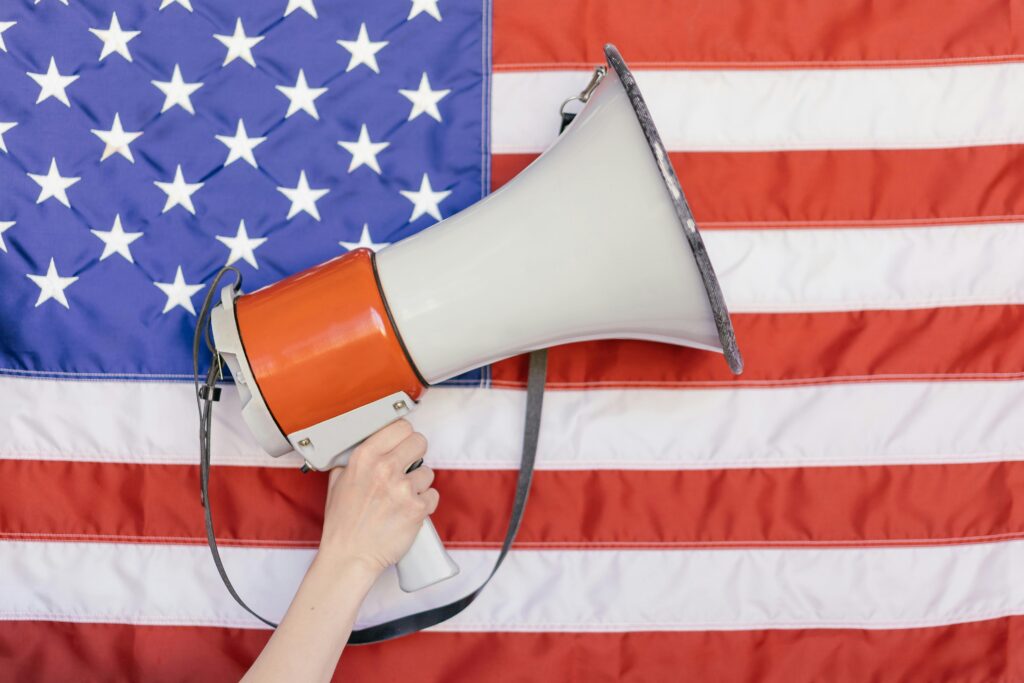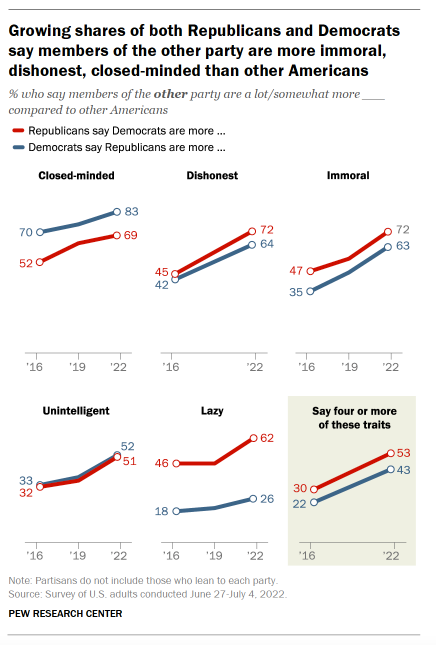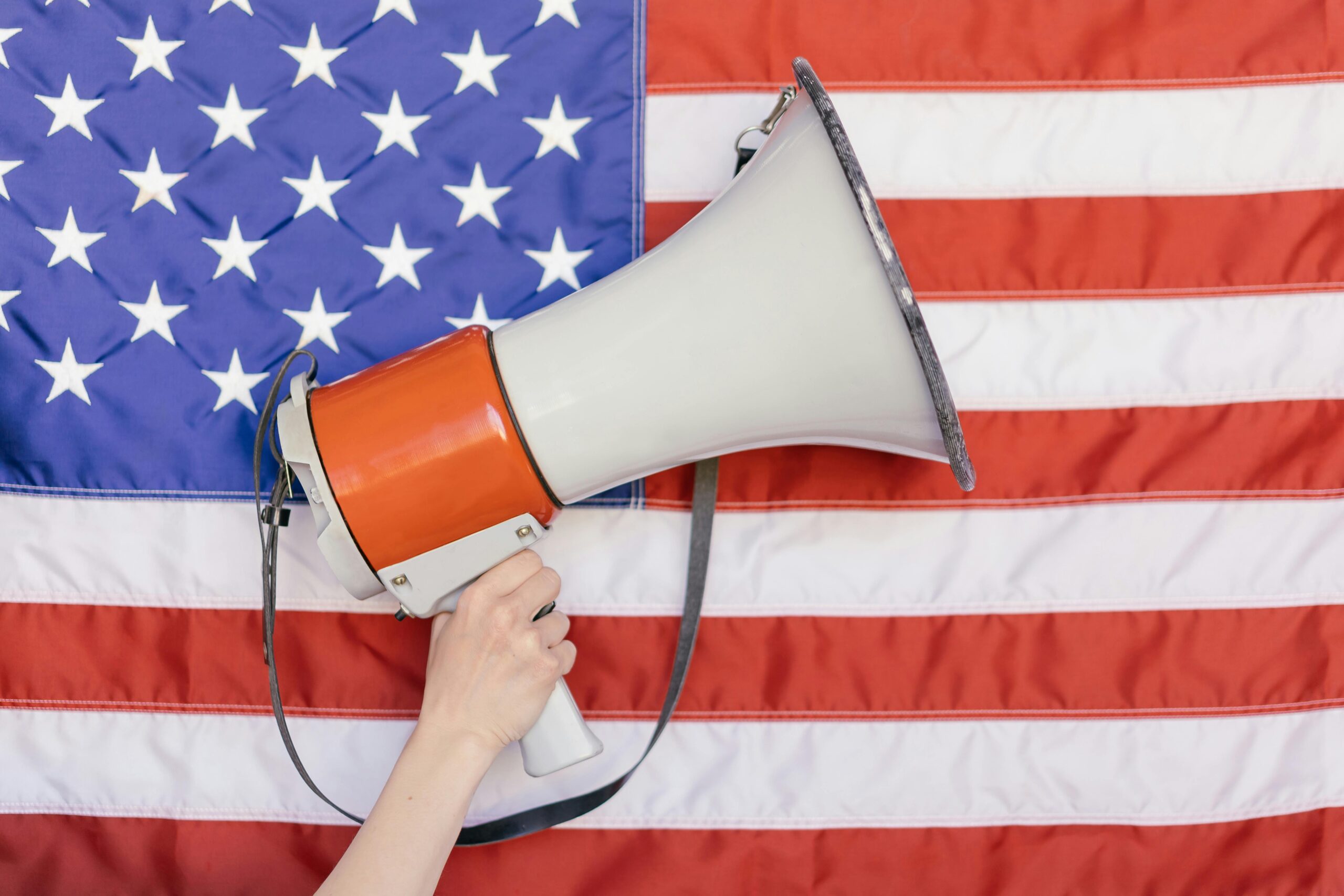
Editor’s Note: Katerina Lewis Archer’s opinion piece won second place in The Kiosk’s Fall 2024 Political Op-Ed Writing Contest.
In America, opinions reign supreme. From the moment a child can speak, they’re asked about their favorite color, the meal they prefer, or which storybook character they like best. This early focus on personal preference is a hallmark of American culture, sharply contrasting with societies where such opinions, particularly from children, are less commonly encouraged. But as we grow, this cultural trait doesn’t just fade away—it intensifies, embedding itself into our education system, media, and politics. While the freedom to express one’s views is a cornerstone of democracy, the modern American obsession with opinion has become a double-edged sword, contributing to both personal empowerment and societal division.
Historically, America’s identity has been built on the value of individualism. Alexis de Tocqueville, a French diplomat who visited America in the early 19th century, observed and described this trait in his book “Democracy in America” (1835), noting the unique importance Americans place on personal autonomy and self-expression. Unlike many cultures where collective opinion often overrides the individual, America fosters an environment where everyone is encouraged, if not required, to have a say. Today, this value is reflected in everything from social media platforms that thrive on personal takes to the booming industry of opinion polling
The Early Start: Opinions from Childhood
Growing up in the United States, children are frequently asked to share their thoughts on a wide array of topics, often long before they have the knowledge or experience to form well-rounded views. In her book “Generation Me” (2006), psychologist Jean Twenge discusses how the emphasis on self-expression in American culture has led to increased self-esteem among younger generations. However, she also notes that this focus can result in an inflated sense of self-importance and a decreased willingness to consider others’ perspectives.
While there is value in teaching children to voice their thoughts, this culture can create an assumption that opinions are ultimate truths. Instead of allowing for flexibility, it often sets children up to feel that their opinions define them. When opinions are treated as identity markers from such a young age, children may grow into adults who feel trapped by the views they’ve held, regardless of how their understanding evolves (Twenge, 2006).
Academia and Market Surveys: The Economy of Opinion
As we grow older, the importance of opinion continues to follow us. In academic settings, students are encouraged to analyze and debate topics. Healthy discourse is critical, but the sheer volume of subjective input—from classroom debates to campus-wide surveys—shapes not just minds but economies. Businesses increasingly rely on consumer feedback, from focus groups to online reviews, to determine market trends and launch products. Opinion has become a commodity, something measurable, valuable, and highly sought after.
However, the omnipresence of opinion in academia and marketing can foster a society that confuses belief with knowledge. Facts and opinions are often presented side by side, with little encouragement to question which is which. The concept of “consumer sovereignty” is heavily intertwined with opinion-driven data, but what happens when everyone’s opinions are fragmented? We get a marketplace where niche views dominate and thrive, creating echo chambers that reinforce cognitive biases rather than encouraging broader understanding.
Rigidity in Opinion and the Risk of Division
The cultural expectation to form and stick to an opinion can breed rigidity. Political and social divides in America have deepened in recent years, partly due to the hardening of individual beliefs. Rather than being seen as natural developments in understanding, changing one’s views is often met with suspicion. A politician or public figure who evolves on an issue is often accused of being untrustworthy or “slick,” as if loyalty to an outdated belief is a virtue in itself. This rigidity has social consequences, particularly in political discourse, where people increasingly isolate themselves in ideological silos.
According to research by the Carnegie Endowment for International Peace, affective polarization in the United States has been rising for decades, with Americans harboring strong dislike for members of the opposing party. This emotional division is exacerbated by cognitive biases like the backfire effect, where exposure to contradictory information only strengthens preexisting beliefs, and anchoring bias, where individuals cling to initial opinions as their “anchor,” making it difficult to shift perspectives even when presented with compelling new evidence.

This entrenched animosity and inflexibility in perspectives suggests a climate where opinions are less about truth-seeking and more about identity preservation, often stifling progress.
Celebrating the Freedom to Change One’s Mind
Despite the stigma associated with changing one’s opinion, this freedom is a cornerstone of intellectual and personal growth. In a society that values innovation and adaptability, the ability to question and evolve should be celebrated, not condemned. It is equally important to understand that our opinions do not define our identity; they are ideas that can and should evolve over time. Recognizing that our views are no better than those of others, no matter how different, fosters humility. American democracy is strengthened not just by the freedom to voice opinions but by the respect we afford to others’ perspectives, even in disagreement.
Throughout history, figures like Abraham Lincoln and Martin Luther King Jr. demonstrated the power of evolving perspectives. Lincoln’s stance on slavery evolved over time, culminating in the Emancipation Proclamation. King, too, refined his strategies and beliefs throughout the Civil Rights Movement. These examples show that changing one’s mind is not a sign of weakness but of strength and wisdom. If America is to overcome its divisions, we must embrace the idea that opinions are fluid rather than fixed, and that respecting others’ perspectives is as vital as standing by our own.





